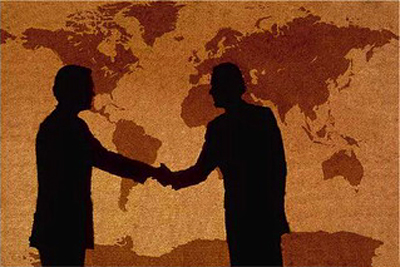During the torrential tide of reform and opening up, the TAC was founded as a national body in 1982. Since then, it has been very active in organizing Chinese translators, facilitating the field's progress and regulating its management. Recent decades have seen translating become a fully-fledged industry in China. It's estimated the country has over 3,000 translation services in different economic sectors, yielding over 30 billion yuan in output value annually.

Translating has been incorporated into university curricula as an independent academic discipline, and is no longer simply a complementary part of foreign languages teaching. Translation styles have evolved from the spoken and written forms taught traditionally, and now include visual, simultaneous and subtitling translation services. Translation by machine, or the use of machines as a supplementary device in translations, is also a rapidly developing field.
Today, more and more people in the world have access to news reports in different languages from China's Xinhua News Agency. They can read China Daily English-language newspaper, watch English, French and Spanish programs by China Central Television (CCTV), and listen to broadcasts in 43 languages by China Radio International. Peopledaily.com.cn, Xinhuanet.com, China.org.cn and CRIonline publish daily online news and features about China in multiple languages. China International Publishing Group (CIPG) has several hundred translators working in 25 languages, publishing books in the political, economic and literary realms, and over 20 periodicals including Beijing Review, China Today and China Pictorial. Several billion copies have been distributed to over 190 countries and regions. For several years running, CIPG has led the country in copyright exports.
The rapid progress of China's economy has boosted the development of the nation's translation industry. China's entry into the WTO, the Beijing Olympics and the Shanghai Expo in 2010 have all increased the number of exchanges with foreign countries in the economic, cultural, sporting and sci-tech fields. As a result the output value of the Chinese translation industry is also expected to grow further.
The Olympics provide an example of the demand for translators major international events can create. Over 100 professional translators are needed for the Games in Beijing, says an official from the Beijing Olympic Organizing Committee, and over 7,000 reports and speeches are waiting to be translated. Some 150 interpreters in over 140 languages are required for press conferences and award-issuing ceremonies. Needless to say, there will also be a big demand for translators to deal with the huge influx of foreign delegations and tourists during the event.
An immature industry
In spite of rapid progress, China's translation industry is still in its infancy and much work remains to be done. Many translation services in China are still focused on the domestic market, and have few interactions with foreign colleagues. As a result, seeking the ideal Chinese partner is a time consuming and hit-and-miss affair for foreign businesses.